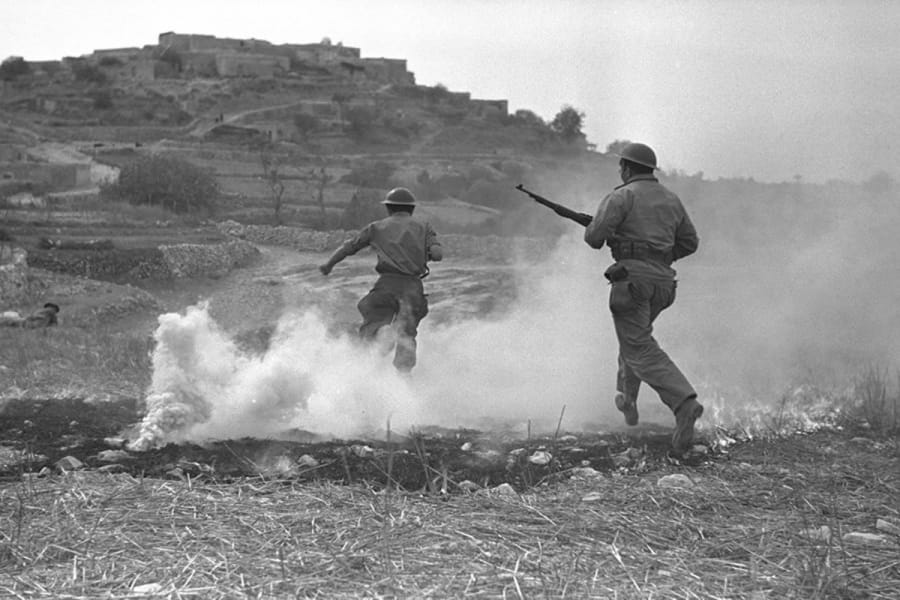Israel's Six Day War heritage project attracts families of IDF soldiers who fell in 1967

While Israel is currently fighting a war against Iran and its terrorist proxies, families of IDF soldiers who fell in battle in 1967 are joining an Israeli Six Day War heritage project at the Ammunition Hill National Memorial Site located in Israel’s capital Jerusalem.
The project, which involves the Heritage Ministry, seeks to document personal belongings of Israeli soldiers who fell in battle during the Six Day War. While Israel won the war decisively, some 776 IDF soldiers fell in the battle for the Jewish state. By comparison, the attacking Arab states, Egypt, Jordan and Syria, suffered casualties that were close to 20,000 soldiers.
Last week Israel celebrated Jerusalem Day, which marked the 58th anniversary of Jerusalem’s reunification as Israel’s capital after the Six Day War.
Rina Benari recalled that her late partner Yaakov Yarkoni reassured her in a postcard during the 1967 Six Day War that “everything will be fine” and they would be reunited after the war. However, by the time Benari received the postcard, she had already been informed of his death. Today, 58 years after the war, she decided to donate her late partner’s personal belongings to the national heritage project.
“Even after all these years, Yaakov is still a part of me,” she said. “We shared a deep love and he still lives within me. Preserving his belongings keeps the memory of who he was – and the love we had – alive,” Benari continued.
Doris, the widow of Yitzhak Kashkash who died in the 1967 war, decided to donate his personal artifacts, including a watch, a shaving machine, a pipe and tobacco.
“For decades, these items were mine alone,” she explained. “Now they belong to all of Israel, so that people can know who Yitzhak really was – not just a name and a photo but a full and vibrant life,” Doris added.
Michal Sagiv was only a baby when her late father Eliezer Miron fell during the war. She explained her decision to share her late father’s personal belongings.
“I got them from my grandmother,” she recalled. “This past Memorial Day, I noticed how few people are left who can speak firsthand about the fallen. It hit me how urgent it is to preserve and record their stories.” Sagiv donated her late father’s tallit (prayer shawl), tefillin and stamp albums.
Fani Vanunu’s father, Nissim Vanunu, was also killed during the Six Day War. As many of the other relatives, she stressed how important it is for the families for people to know who the fallen soldiers were.
“Until now, my father’s story was only known within the family. Now, it will be part of the national memory of the Six Day War,” Fani said. “All I have left of him are photos and passports. Now people will know not just his name but his face and who he was.”
The head of the project, Maya Lebkowitz-Segal, said that Israel is in a race against time to preserve these last artifacts of the fallen soldiers.
“We’re racing against time as these items age. We’re photographing, scanning and preserving them to ensure they last forever and become a permanent part of the Six-Day War’s legacy,” she explained.
The Director of the Ammunition Hill National Memorial Site Kitri Maoz stressed how precious these items are in the eyes of the bereaved family members.
“Even decades later, the pain of loss remains present in these families. They hold on to every photo, item or memento. Our goal is to preserve their stories and make sure they live on for generations,” Maoz said.

The All Israel News Staff is a team of journalists in Israel.
You might also like to read this:














